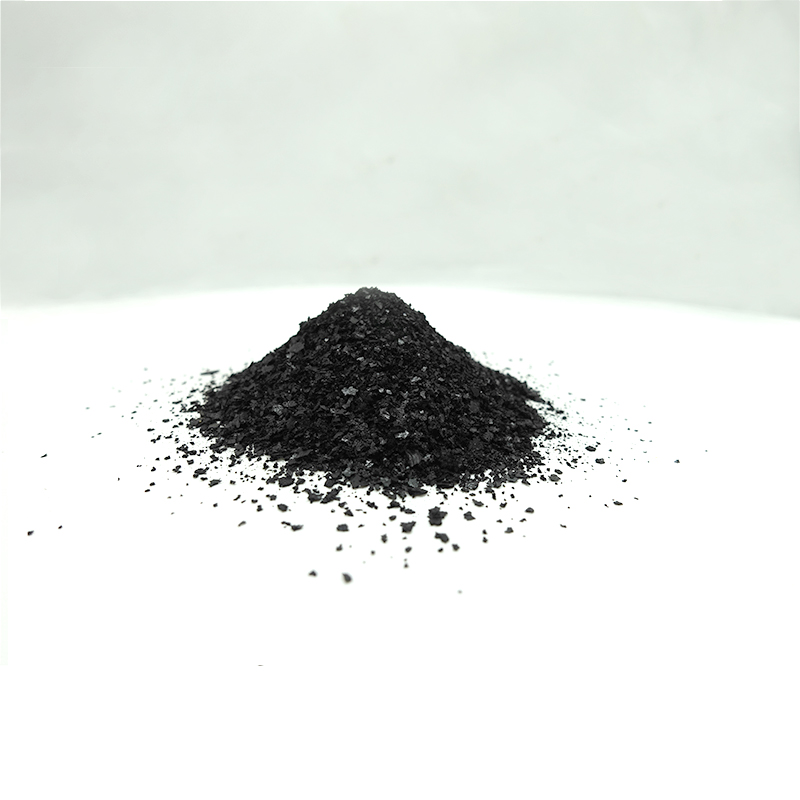Introduction to Organic Soluble Fertilizers
Organic soluble fertilizer is one of the major innovations of the agro-scientific community which help in boosting up the plant growth and enriching the soil health over traditional fertilizers. Organic soluble fertilizers contain water-soluble organics that are well absorbed by plants so that the availability time will be very less; thus they get the nutrients in no time.
Perhaps the most obvious advantage of using organic soluble fertilizers in agriculture is that they make nutrients instantly available to crops. As Dr Simon Richards, Soil Scientist at the GreenTech Agricultural Institute in Palo Alto, says, ‘Soluble organic fertilizers have a rapid action, so nutrients become available for plant use immediately, which benefits crops that have intensive growth cycles and are usually grown for market in a relatively short space of time.’ Indeed, one of the most critical aspects of crop cultivation is growing a crop with good yields from high quality produce in a short space of time. For crops that flower quickly, coming into flower successfully before they go to seed can make all the difference.
By contrast, conventional non-soluble organic fertilizers are effective over longer timescales, but they do not generally deliver nutrients instantaneously, but rather depend on microbial activity in the soil to break them down, hence they may not be the fertilizer of first choice for rapid growth requirements or in colder climates where microbial activity is also slowed down. It is the above contrast that is starting to explain why, for many farmers looking for greater efficiency and sustainability, organic soluble fertilizers are beginning to look quite attractive.
Modern agriculutral practices stand to beneift from the integration of fertilizers that are soluble in organic materials within the soil without any negative environmental impact. By adopting these practice, farmers helps plant grow better increasing the yield advantage.
Types of Organic Soluble Fertilizers
The market provides a complete spectrum of organic soluble fertilizers, which can be employed to meet the plant’s nutritional needs while staying eco-friendly. They are obtained from nature and further water-solubilized for quick usage of nutrients.
Common types of organic soluble fertilizers include:
- Seaweed Extracts: Rich in micronutrients, they stimulate plant growth and enhance stress resistance.
- Fish Emulsions: High in nitrogen, they are excellent for leafy, vigorous growth and for organic farming methods, because they work fast.
- Blood Meal: A potent source of nitrogen, ideal for promoting rapid green growth.
- Bone Meal: Also high in phosphorus, which is needed for strong root growth and flowering in plants.
- Humic Acids: These enhance nutrient uptake and increase soil vitality by improving soil structure.
Emily Jacobs, a plant-nutrition expert at the Sustainable Agriculture Network, says: “Many [liquid and organic] inputs have nutrients like fish emulsion and seaweed extracts in them that help define a plant and make it stronger and healthier because of the quickness in which plants can obtain the nutrient as well as the growth hormones and amino acids that are in them that we cannot provide as a grower.”
Often, these fertilizer products have been side-streams through more advanced processing methods of bio-organic products, where the nutrients are rendered highly water dissolvable without breaking down the integrity of the organic nature of the products. Often, they have been turned into liquid or fine powders that will quickly mix with water and dissolve upon application. This is necessary since they will not be applied in the traditional fashion of watering the fields, and instead, will be dispersed as a small-particle suspension through a wide variety of irrigation systems, such as drip or sprayed application.
Selecting the suitable organic soluble fertilizer to crop greatly increases the plants’ growth, yield, and healthy plants as each type has its benefits, understanding theirs can aid in the right selection for each crop needs and growth stages.

How Organic Soluble Fertilizers Enhance Nutrient Availability
Organic soluble fertilizers improve retention in the field, through better availability of nutrients in the plant. Furthermore, organic fertilizers provide nutrients to the plants through the most direct pathway – from soil in to the plant. The soluble nature of a fertilizer means it can dissolve quickly in water and thus be immediately available to the plant’s root system. This fast movement of nutrients to the plant is particularly important during periods of rapid growth, where plants are maximising their capacity and it’s important to be able to boost with nutrient availability.
The main reason why organic soluble fertilizers can boost nutrient uptake is that they are designed to be taken up by the roots. ‘Soluble fertilizers avoid a lot of the soil’s natural nutrient-locking mechanisms, preventing nutrients from getting trapped or unavailable in the soil, and thus make them available to the root zone where plant incoming roots can pick up those nutrients with minimal loss,’ explains Laura Green, an agronomist who spoke with Jesus Castaneda for an article on fertilizers.
However, organic soluble fertilizer, deliverd repeatedly especially in the rainy season, can play a critical role in maintaining the health of the soil (‘soil health’) and fertility of the soil (‘soil fertility’). Specifically, these fertilizers can help maintaining the nutrient balance of the soil, by supplying essential elements to the plants in a steady manner. Moreover, they can help maintain the population of soil microbes, by supplying the essential microbial requirements for organic matter decomposition and nutrient cycling. When soil health improves from organic soluble fertilizer application, the soil provides a fertile and nurturing environment for plants, in turn enhancing plant vigour and robust growth.
And case studies and studies have repeatedly shown successful use of soluble organic fertilizers. For instance, a study from the Institute of Sustainable Horticulture has shown that a 25 per cent growth boost was given to plants fertilised with soluble organic options as opposed to equivalent conventional non-soluble organics. This is simply because deliverance of nutrients is instantaneous to soil, immediately stimulating growth and development.
With the use of organic soluble fertilizers, crops can receive nutrients in the most sustainable way possible, so that plants are healthier and produce better yields. Such fertilizer is proving an invaluable tool for modern agriculture – combining the benefits of organic farming with the efficiency of synthetic fertilizer approaches.
Application Techniques for Organic Soluble Fertilizers
Organic soluble fertilizers should be used properly to minimize losses and consequently reduce their environmental impact. One of the main features of these fertilizers is their solubility in water, allowing for a controlled and even distribution through the plant’s surface.
The best practices for applying organic soluble fertilizers involve several key techniques:
- Dilution and Mixing: It’s crucial to dilute your fertilizer correctly to ensure that the concentration isn’t too high, which could harm the plants, nor too low, which might not provide sufficient nutrients. Proper mixing ensures that the fertilizer is evenly dispersed throughout the solution.
- Application Methods: There are multiple ways to apply these fertilizers. Foliar application involves spraying the fertilizer directly onto the leaves, providing a quick way for plants to absorb the nutrients. Alternatively, applying the fertilizer to the soil using methods like drip irrigation or a watering can also distributes the nutrients effectively.
- Timing and Frequency: The best time for applying fertilizers is in the early morning or late evening to minimize nutrient evaporation and maximize uptake. “It’s all a matter of timing,” says Helen Carter, a plant physiologist at Newcastle University. She emphasizes that applying soluble fertilizers at the right time can significantly improve uptake and reduce runoff. Typically, fertilization should occur once every 2-4 weeks, depending on the crop and its stage of growth.
Additionally, weather conditions must be monitored before application. Avoid applying fertilizers before heavy rains to prevent runoff, which not only leads to a loss of fertilizers but also contributes to environmental pollution.
By using these methods, organic soluble fertilizers can significantly enhance plant growth and yield while remaining safe for both the environment and the farmers or gardeners applying them. These practices ensure that the use of fertilizers aligns with sustainable farming and gardening techniques.

Advantages of Using Organic Soluble Fertilizers
The benefits of using organic soluble fertilizers are many. They are environmentally, agronomically and economically beneficial sources of nutrients, both for the sustainability of agriculture and the enhancement of crop quality and yields for modern agriculture.
Environmental Advantages: Since they are made from natural ingredients, organic liquid fertilizers are biodegradable and their usage results in significantly less environmental pollution, in comparison with the production of synthetic fertilizers. Their application contributes to the reduction of chemical run-off and various pollutants of subterraneous waters, other water sources, soils and the atmosphere. Less fertilizer is needed to obtain the same growth effect because of the plants’ ability to absorb it more effectively.
As well, plant growth and yield can be improved with solutions, as organic nutrients in solution are much more accessible than those in traditional organic forms, and so nutrients can be absorbed more quickly and efficiently by the plant. With the high levels of nutrients needed during times of peak growth, the faster-accessible organic nutrients can help plants to fully realise their growth potential and produce a better, more abundant yield. This, of course, is not only a benefit to the plants, but also for the planet and humanity.
Plants with better nutrition often have a higher level of natural resistance, allowing them to stave off infestations of insects, fungi and other pests and, in turn, they will need less or even no chemical control agent for pest management. It’s this combination of increased, healthy yields and reduced chemical use that make organic soluble solutions an excellent resource for farmers seeking to grow natural, healthy food.
Economic Benefits: When used in a farm or garden, utilisation of organic soluble fertilizers can save money for the farmers and gardeners. Because these fertilizers are more concentrated, there is a possibility of applying them less often than non-soluble organic fertilizers. Secondly, the enhanced efficiency of nutrient absorption means that less fertilizer is lost during its use, which is a significant cost reduction in the conversion of fertilizers to plants’ nutrients.
As the agricultural economist Dr Lucy Zhang points out: ‘The organic fertilizer can be first optimised to be applied according to its soluble forms. This minimises fertilizer cost since soluble forms have higher efficiency.’
Overall, organic soluble fertilizer is a feasible solution for the protection, improvement and restoration of crop growth and soil condition, with exceptional sustainability, practicability and economic feasibility.
Conclusion
In conclusion, the use of fertilizers that can be soluble in organic liquids is a progressive direction of modern farming. This is because it regulates nutrition availability much more favorably than solid fertilizers, facilitates plant growth which in turn leads to top yield and best quality of crops and ensure workable sustainable farming. The use of organic soluble fertilizers will help farmers resist to expend alot on fertilizers while it will bring about best practice in farming. As a result more farmers will be more economically comfortable and at the same time farming environment will be healed.
The methods, as I prefer to think of them, mean a commitment to preserve ecosystem services with the continuation of agricultural productivity. The journey ahead of us, as we can see now, is assured to be much greener if we can only integrate the twin concepts.
Thus, those people have to adopt organic soluble fertilizer to their cultivation routine for good reasons.Here is signigicant positive impact of these companies’ products on the world of agriculture. They streghthen the ideas of sustainable agriculture by encouraging more healthy formation of soil, preserving nature and keeping the nature for the upcoming generations.
Here are some references and resources about organic soluble fertilizers:
- Michigan State University Extension discusses the benefits and food safety concerns related to using organic fertilizers, including the nutritional value of products grown with these fertilizers versus those grown with conventional methods.
- Oregon State University Extension Service provides guidance on how much fertilizer to apply, especially focusing on organic options like blood meal and chicken feather meal, which are high in nitrogen. They also discuss organic amendments high in phosphorus and potassium.
- Utah State University offers insights into selecting and using organic fertilizers, including considerations for cost and the amount needed based on the nutrient concentration of the fertilizer and the area being fertilized.
- University of Massachusetts Amherst provides thoughts on using liquid organic fertilizers in greenhouse settings, discussing potential size reductions in plants and the specific needs of different plant species when using organic fertilizers.







